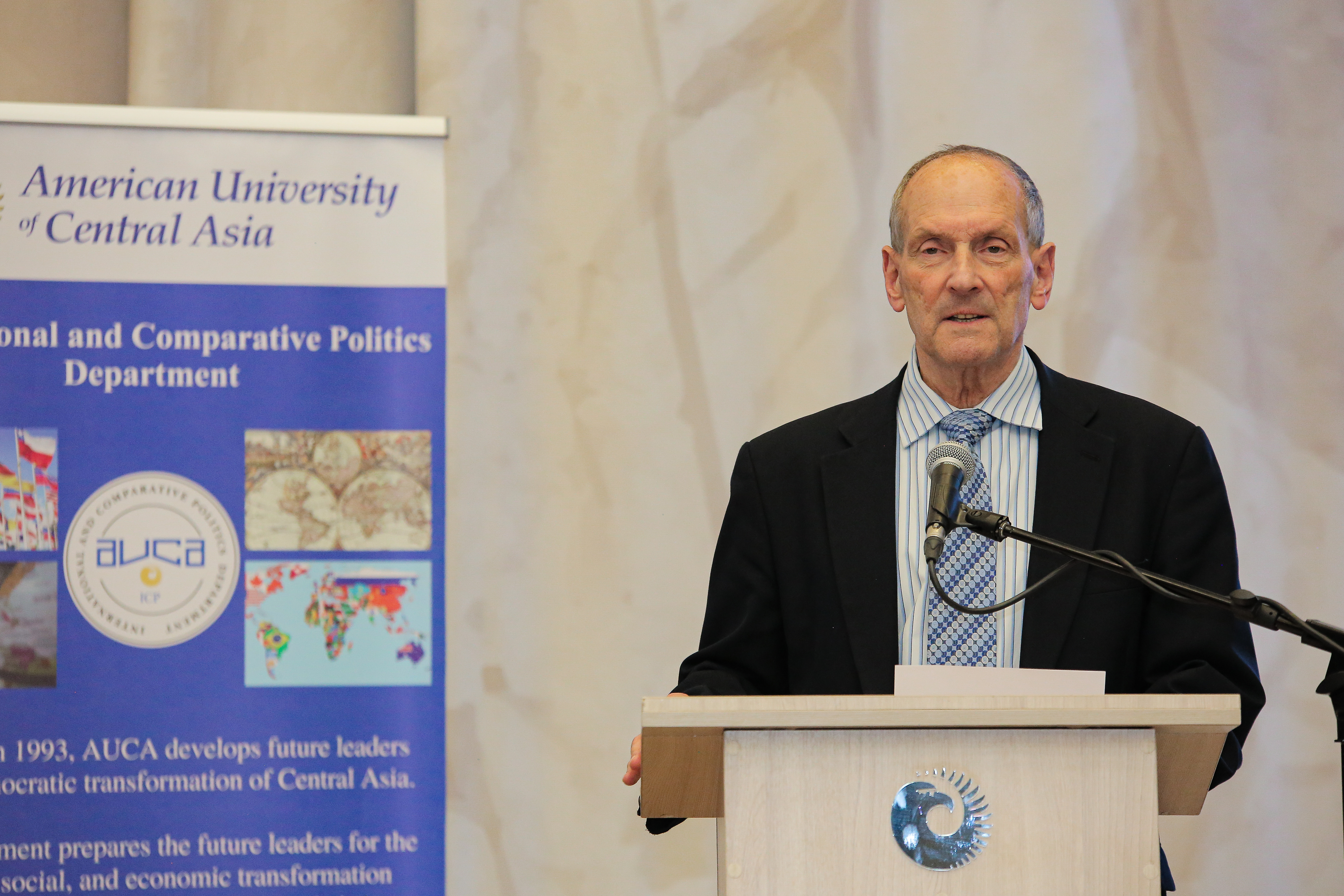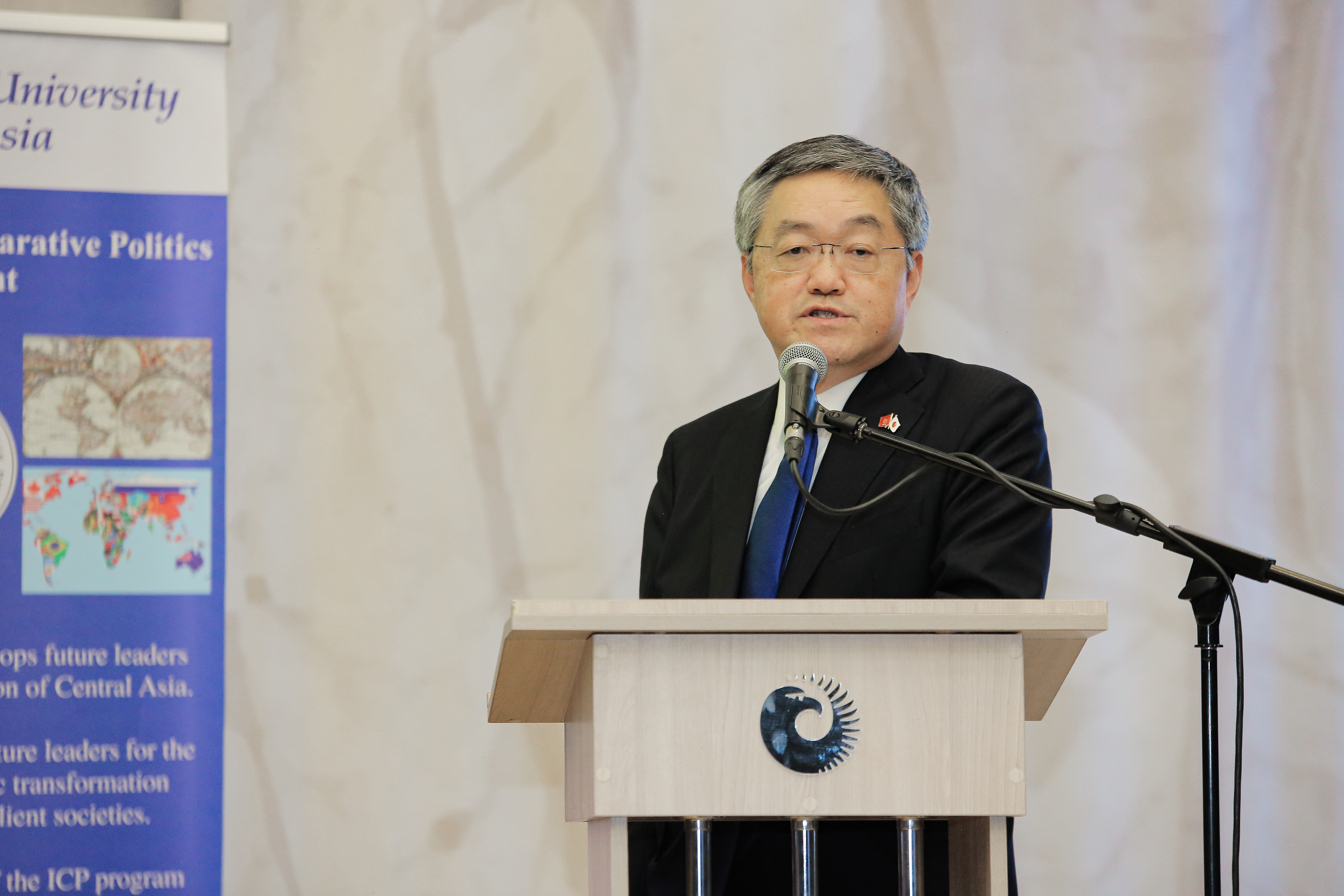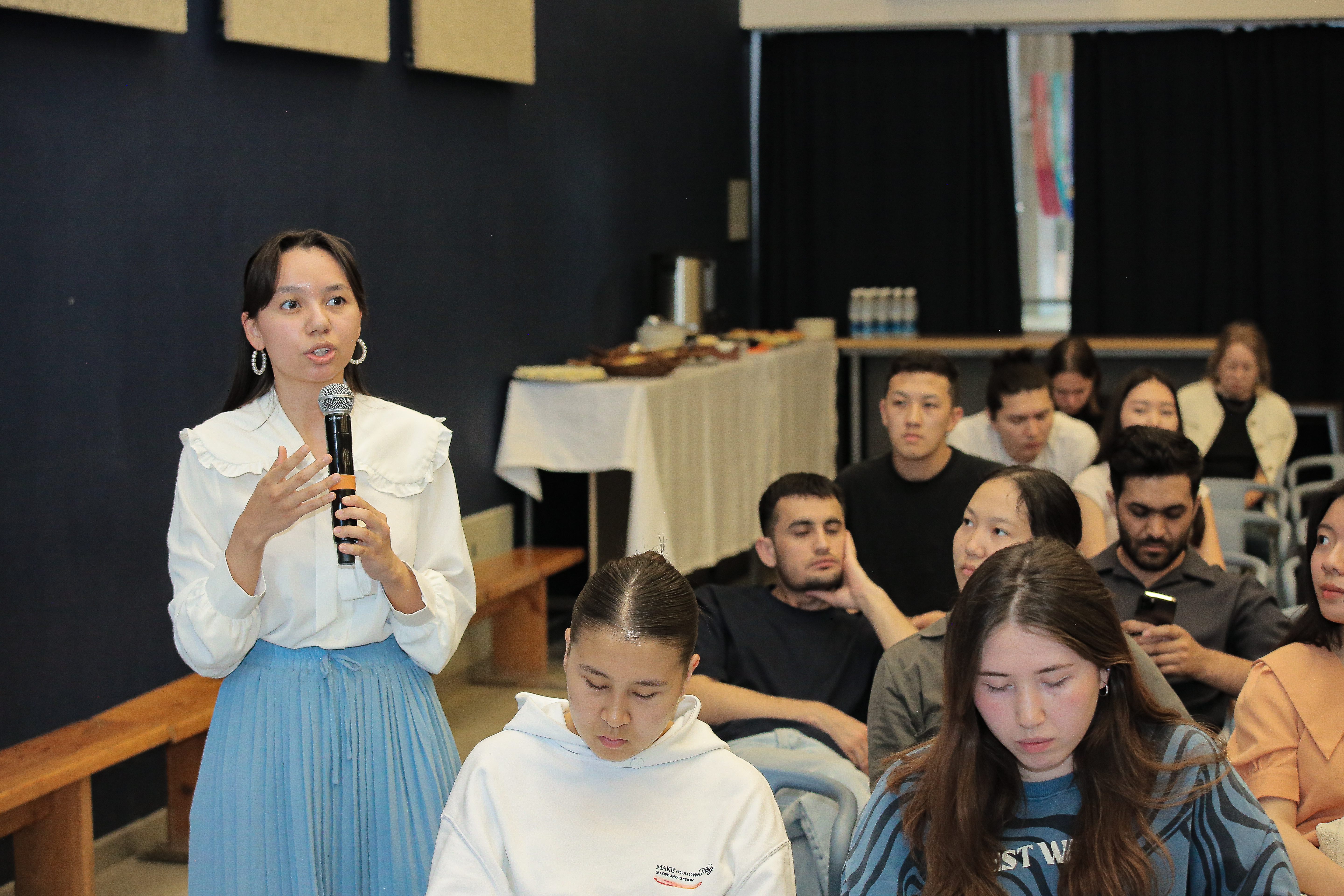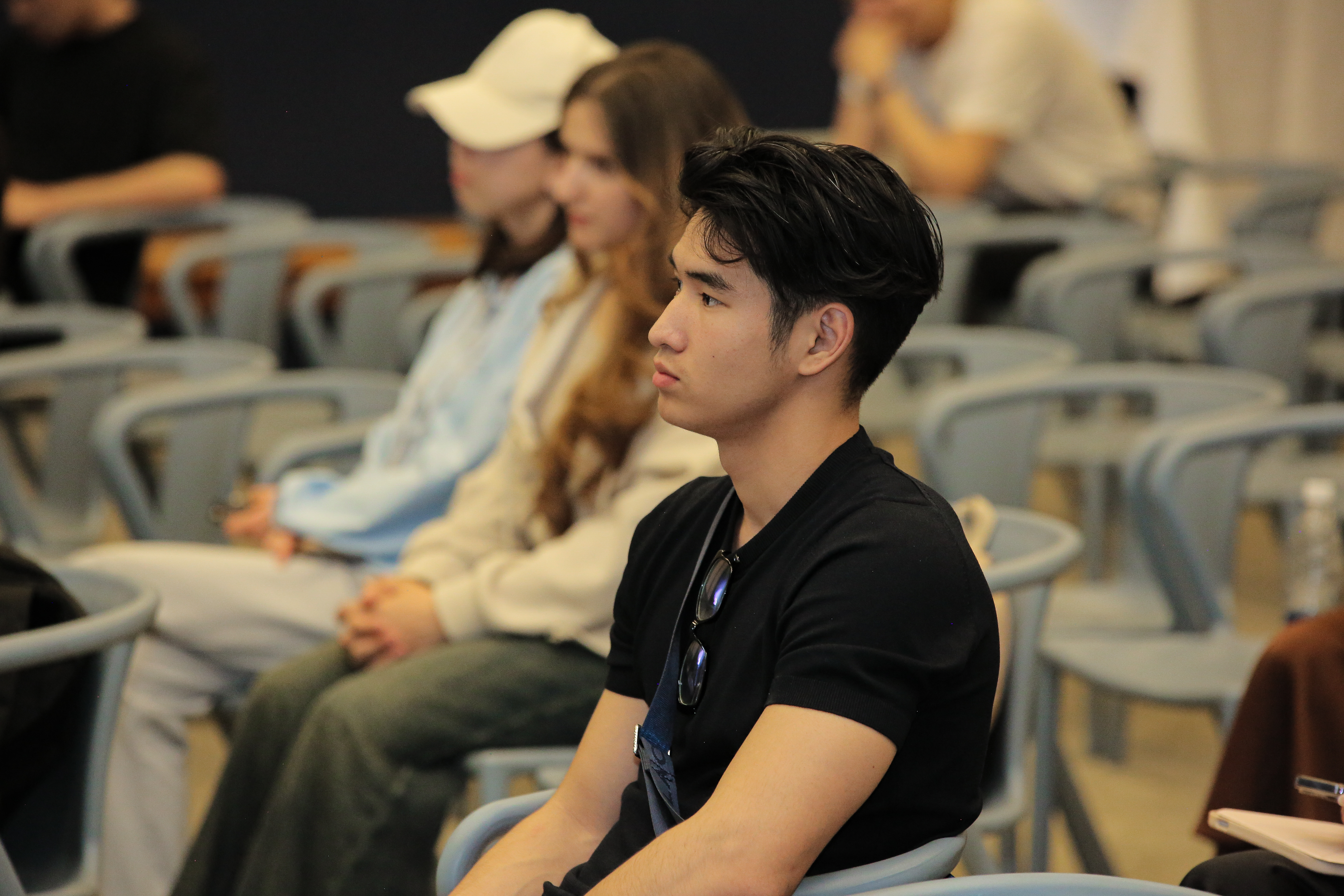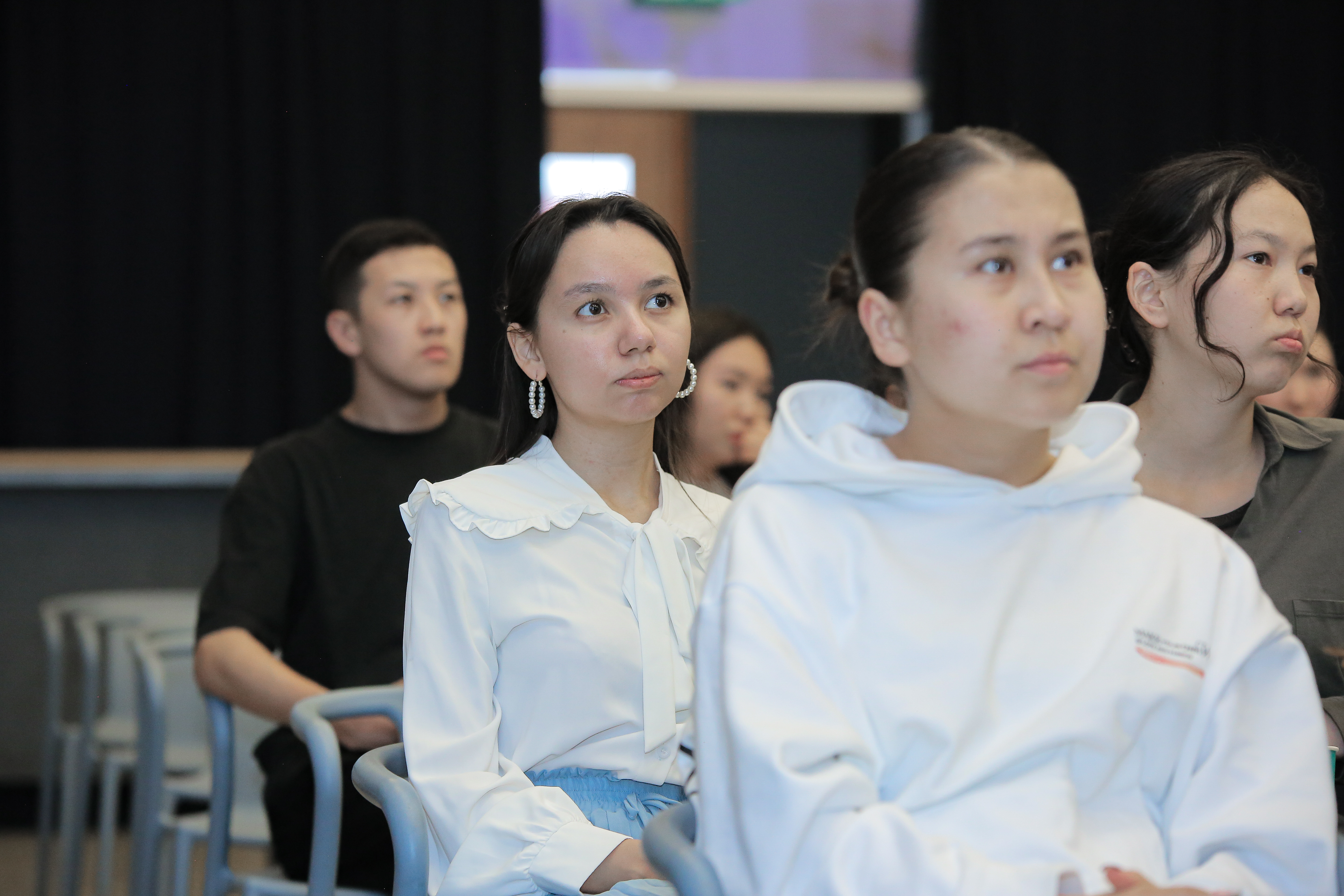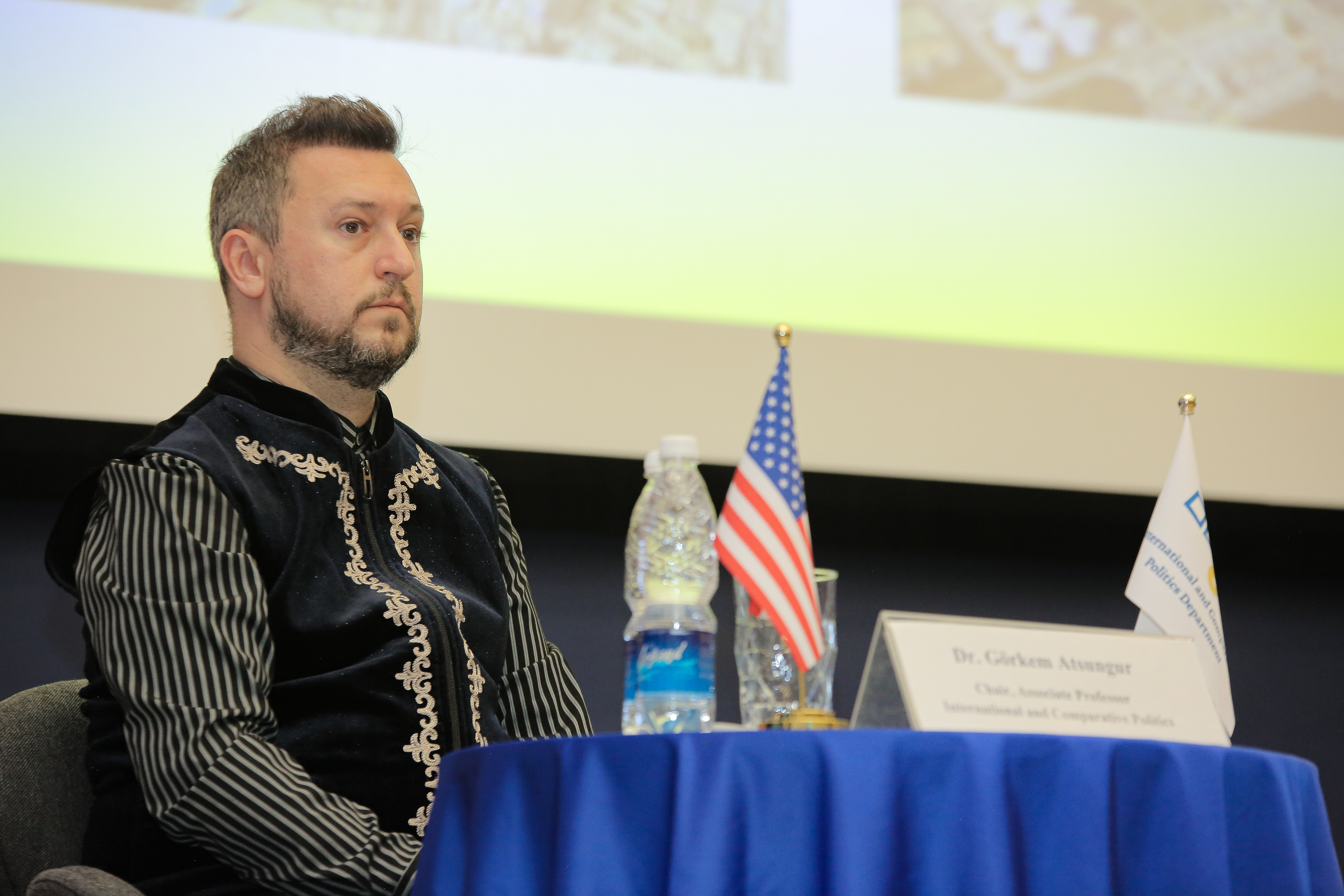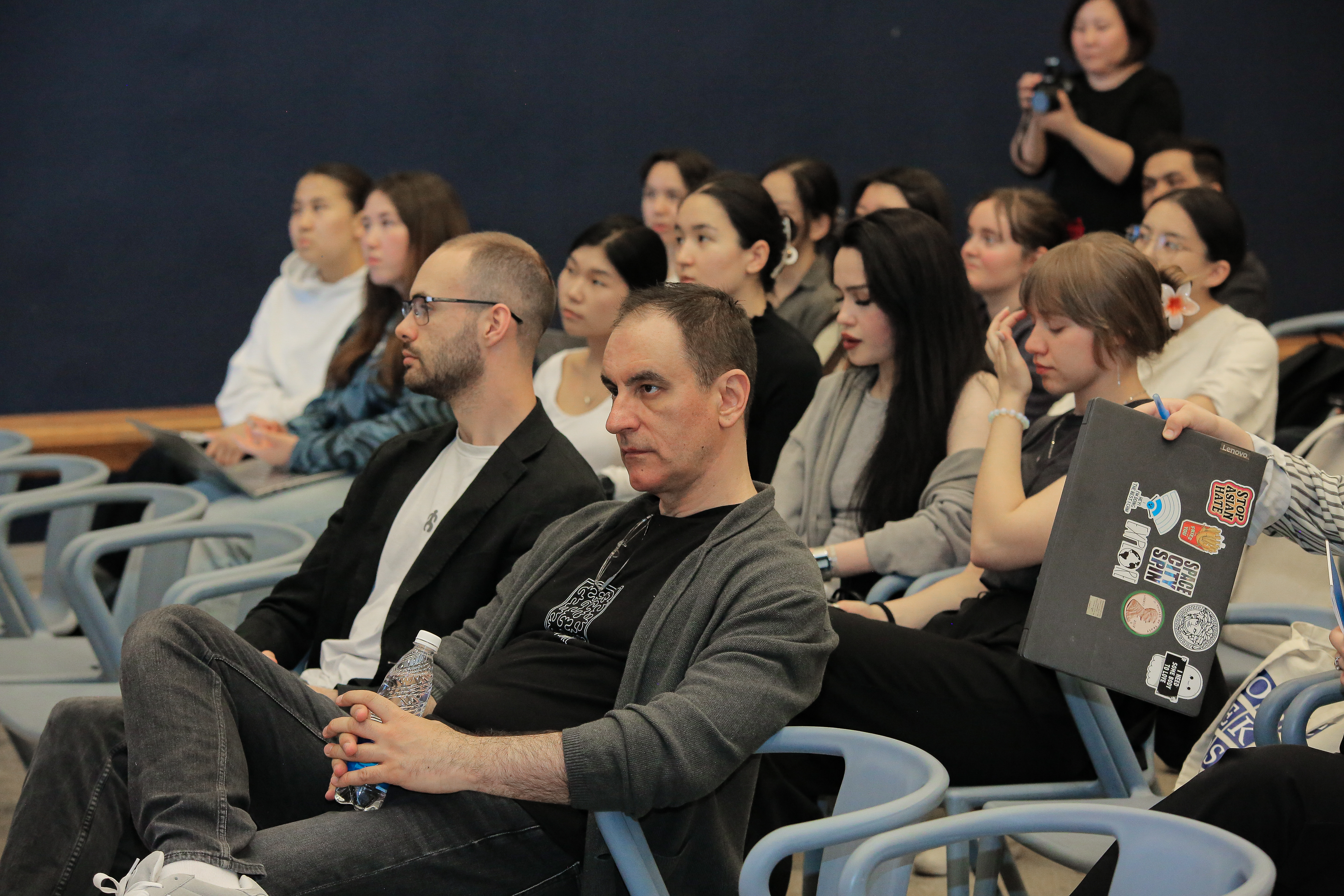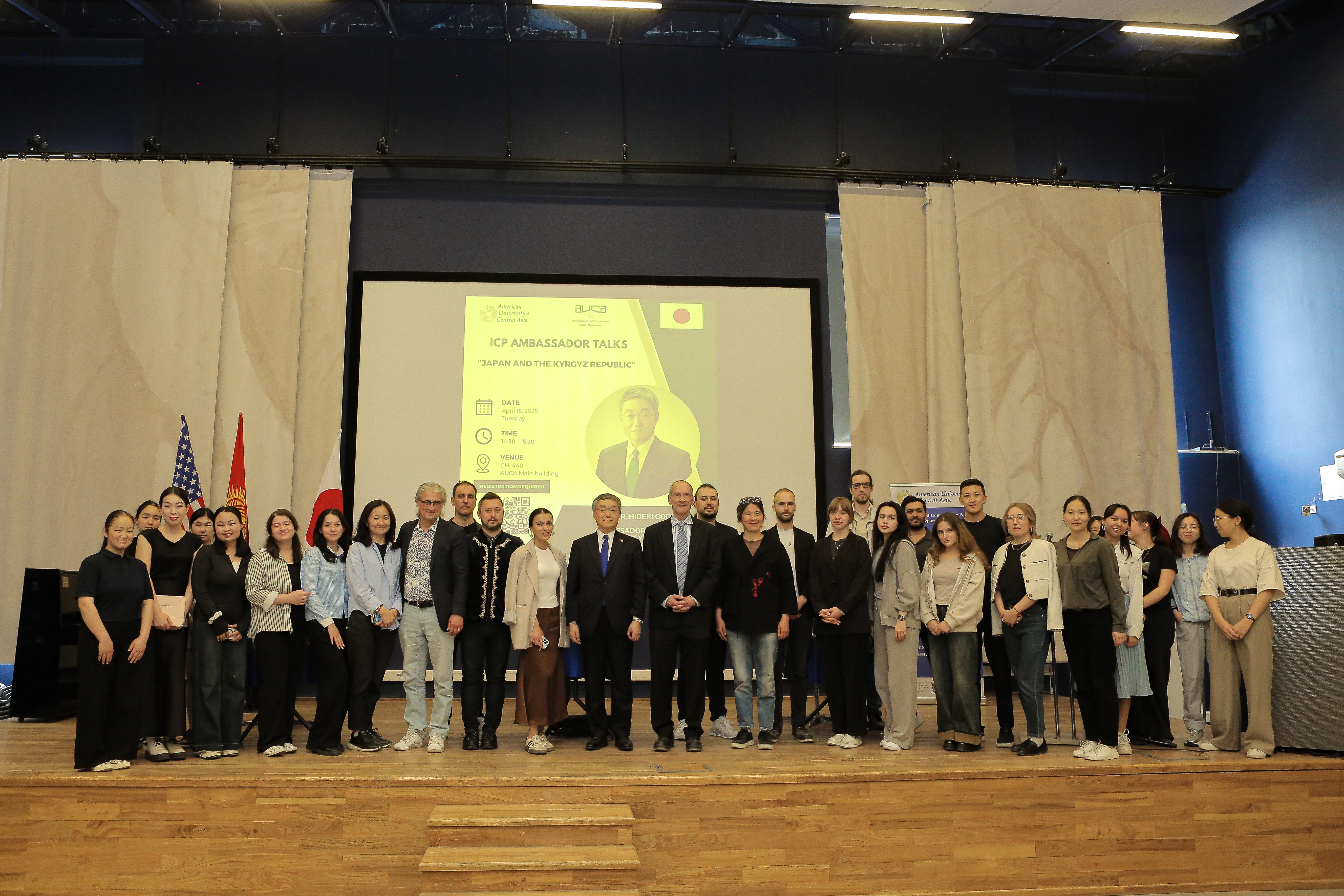Ambassador Talks: "Japan and the Kyrgyz Republic"
May 19, 2025
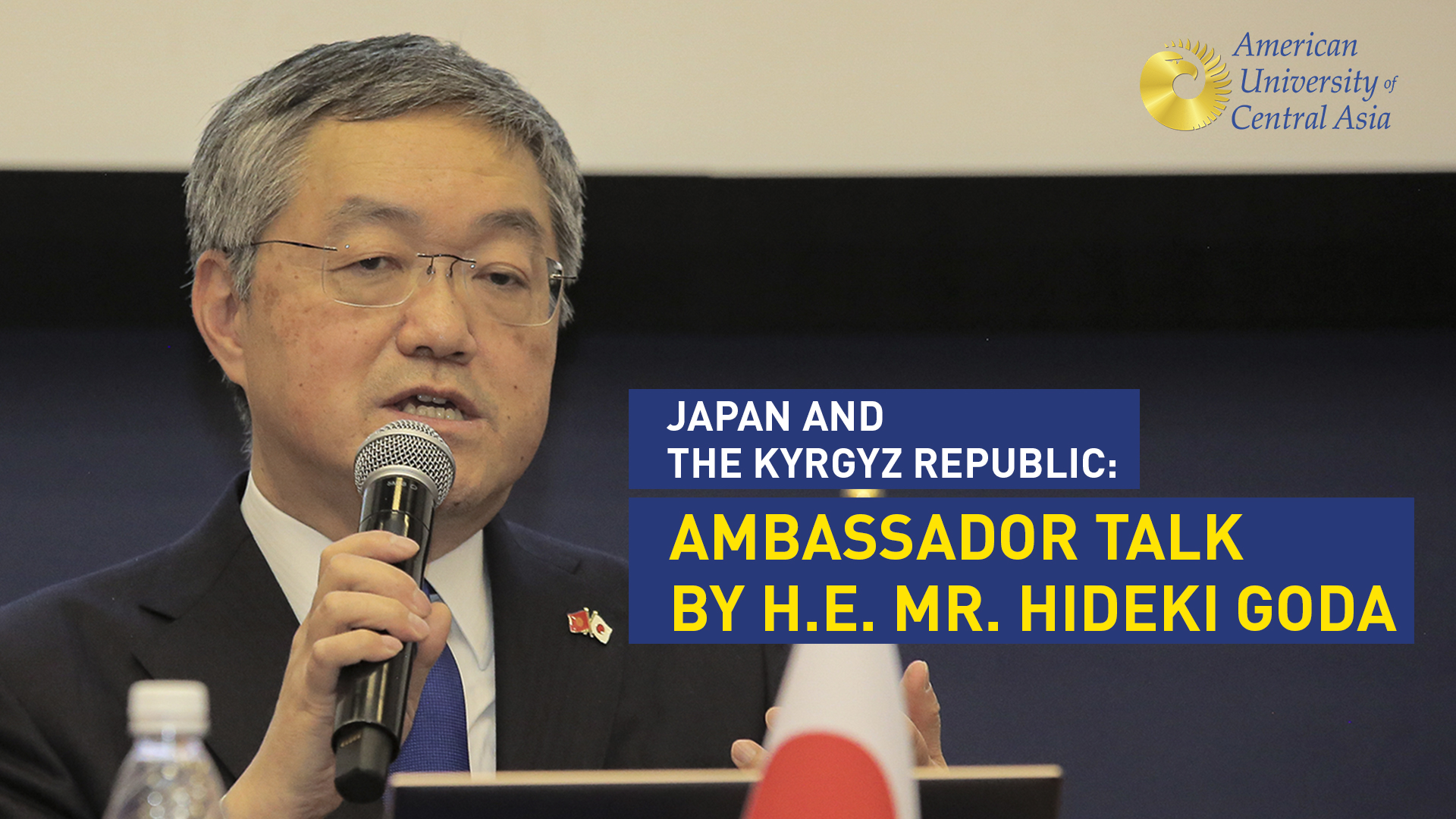
On a recent occasion in April 2025, the American University of Central Asia (AUCA) welcomed His Excellency Mr. Hideki Goda, Ambassador Extraordinary and Plenipotentiary of Japan to the Kyrgyz Republic, for a guest lecture titled “Ambassador Talks: Japan and Kyrgyzstan.” The event offered a valuable opportunity for students and faculty to observe firsthand the nuances of contemporary diplomacy, development policy, and international cooperation. The session underscored both the depth and the strategic orientation of bilateral relations between Japan and the Kyrgyz Republic.
The Ambassador’s presentation was structured around a comprehensive overview of Japan’s engagement with Kyrgyzstan since the establishment of diplomatic relations on 26 January 1992. Through a combination of economic data, project case studies, and reflections on recent diplomatic milestones, the lecture facilitated an analytical understanding of Japan’s foreign policy implementation in Central Asia.
A particularly noteworthy aspect of Japan’s involvement in Kyrgyzstan is its substantial contribution through Official Development Assistance (ODA). As of 2021, Japan’s total ODA to Kyrgyzstan exceeded $722 million, disbursed across three primary channels: grant aid, yen loans, and technical cooperation. The Ambassador detailed several emblematic projects, such as the reconstruction of critical infrastructure along the Bishkek-Osh and Talas-Taraz roads, as well as modernization of facilities at Manas International Airport. These initiatives illustrate Japan’s commitment not only to enhancing physical connectivity but also to promoting economic resilience and regional integration.
In the context of human capital development, the Ambassador highlighted the significance of the Japan Human Resource Development Scholarship (JDS), initiated in 2006. To date, over 250 Kyrgyz scholars have completed postgraduate education in Japan, many of whom currently occupy key positions in public administration. This program, as discussed during the lecture, exemplifies a long-term investment in institutional capacity building and reflects a model of development cooperation grounded in knowledge transfer and leadership cultivation.
Another area of considerable interest was the One Village One Product (OVOP) initiative, which has successfully localized a Japanese rural development model to the Kyrgyz context. Since its launch in Issyk-Kul oblast in 2007, OVOP has supported community-based economic activities by enabling local producers to create value-added goods for national and international markets. This model not only empowers rural populations but also fosters sustainable development through entrepreneurship and self-reliance.
Cultural diplomacy also featured prominently in the Ambassador’s remarks. Through Grassroots Grant Assistance and Cultural Grant Programs, Japan has supported projects that enhance social inclusion—such as the provision of Braille printing equipment for visually impaired students, and the preservation and modernization of cultural institutions, including the Kyrgyz National Philharmonic and the “Seitek” Center for Children and Youth.
Of particular diplomatic importance was the Ambassador’s reflection on the official visit of President Sadyr Japarov to Japan in November 2023. The visit culminated in a Joint Statement on Friendship and Comprehensive Partnership, marking a new phase in bilateral relations. The agreement signifies not only a reaffirmation of shared values—such as democracy, the rule of law, and human rights—but also a strategic alignment in areas including trade, investment, energy, and regional security.
The lecture also contextualized Japan’s regional strategy within the framework of the “Central Asia + Japan” Dialogue, launched in 2004. Ambassador Goda emphasized Japan’s intent to promote regional cooperation in Central Asia by prioritizing “investment in people” and “quality growth.” In this regard, the dialogue functions as both a platform for political consultation and a mechanism for multi-sectoral collaboration.
Finally, the presentation provided a broader insight into Japan’s global diplomatic orientation, particularly its commitment to the Free and Open Indo-Pacific (FOIP) vision. Ambassador Goda described Japan’s foreign policy as being rooted in the values of human dignity, inclusiveness, and legal order. The emphasis on multilateralism, equal partnerships, and peaceful development aligns closely with Japan’s historical approach to international relations, particularly in post-war contexts.
In conclusion, the “Ambassador Talks” session served as a valuable case study in applied diplomacy and foreign aid strategy. It illuminated how bilateral relationships are cultivated not only through formal agreements but also through sustained cooperation in infrastructure, education, culture, and regional dialogue. For students and scholars of international relations, the lecture was a compelling example of how middle powers like Japan exercise influence through soft power, capacity building, and principled engagement with developing nations.
